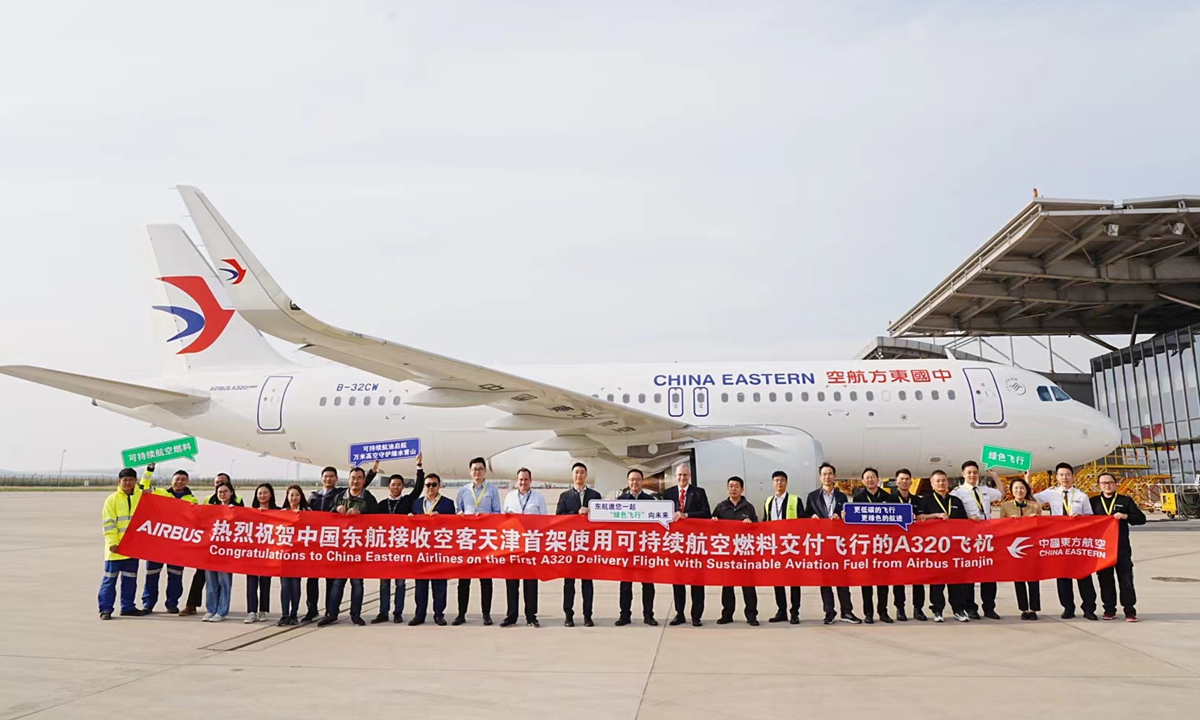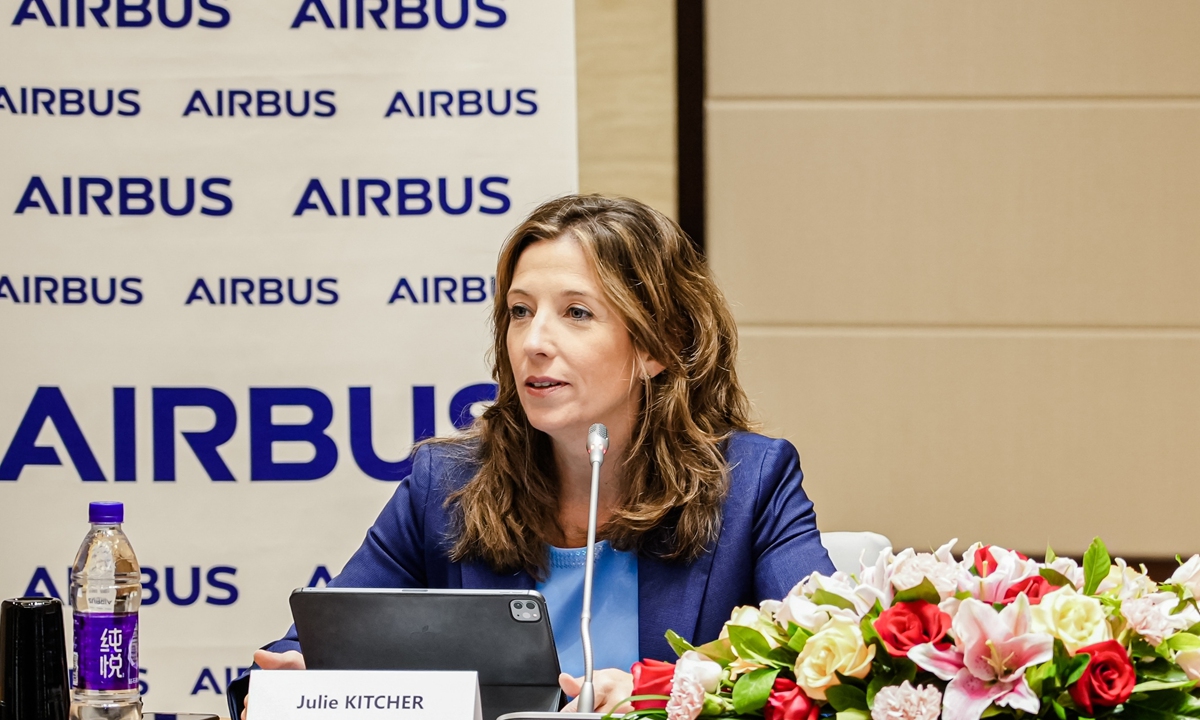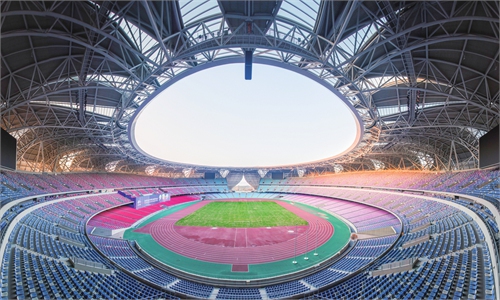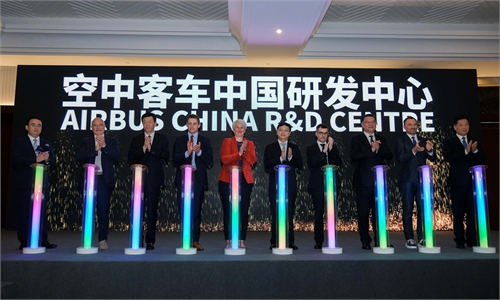Airbus helps propel sustainable energy transformation in civilian aviation: executive

Photo: Courtesy of Airbus
Airbus is playing a role of "catalyst" in Chinese market for the development of sustainable aviation fuel (SAF) industry, propelling sustainable energy transition in civilian aviation sector to realize decarbonization targets, an executive from Airbus said in Beijing on Tuesday.
Airbus is working on a number of levers, so the first one is technology and fleet renewal. The company is also working actively on improving the efficiency of operations. And the third and very big one is the energy transition of which SAF is a key topic, Julie-Kitcher, Executive Vice President of Airbus said.
The comments are made as more Chinese airlines vowing to promote use of sustainable aviation fuel. In October of last year, Airbus said its Tianjin plant delivered an A320neo to China Eastern Airlines that used five percent SAF as the fuel during its delivery flight.
SAF is a sustainable aviation fuel made from feedstock ranging from used fat, oil and grease to municipal and forestry waste. Compared to fossil jet fuel, SAF has been demonstrated to result in an up to 80 percent reduction in CO2 emissions. Therefore, it is considered as a key enabler to contribute to the de-carbonization of aviation sector.

Julie-Kitcher, Executive Vice President of Airbus Photo: Courtesy of Airbus
And so when talking about SAF, there's a huge capability in China with feedstock in abundance, technology and innovation and in fact, China has been supporting certification since 2008 in different ways. All the airlines have expressed interest in environmental matters on sustainability, SAF in particular, Kitcher said.
And Airbus is working with China National Aviation Fuel Group Corporation to develop the SAF industry or act as a catalyst in China, she added.
In July of last year, the Airbus Lifecycle Services Center project broke ground in Chengdu, Southwest China's Sichuan Province. The project is Airbus' first aircraft lifecycle service project outside Europe. The company said the project has moved from the planning stage to construction and the aim is for it to enter into service by the end of 2023.
Airbus is spending around 2 billion euros per annum on R&D, which is mainly targeting sustainable aviation. All partners and players will need to make significant investments for their respective licenses to continue to operate. Aircraft manufacturer need to really look at the overall lifecycle of the aircraft, so it's from design, supply chain, the operations, the maintenance, and the end of life recycling, Kitcher said.
To show the conviction in terms of the necessity to decarbonize the sector, Kitcher said that they're working on different levels for the industry, including the technology starting with fleet renewal and enhancing and improving the efficiency of air traffic management operations.
She also said to enhance the energy transition, which means to increase the adoption of SAF, Airbus targets to certify all its aircraft with 100 percent SAF capability by the end of this decade, adding that the company is also developing hydrogen technologies for future use.
Airbus is aiming to reach a global 10 percent target by 2030, which is around 34 million tons of SAF by 2030.Actual demand for probably around 20 million tons are committed. So "we still have progress to make, but we're confident that collectively we can get there", she said.



